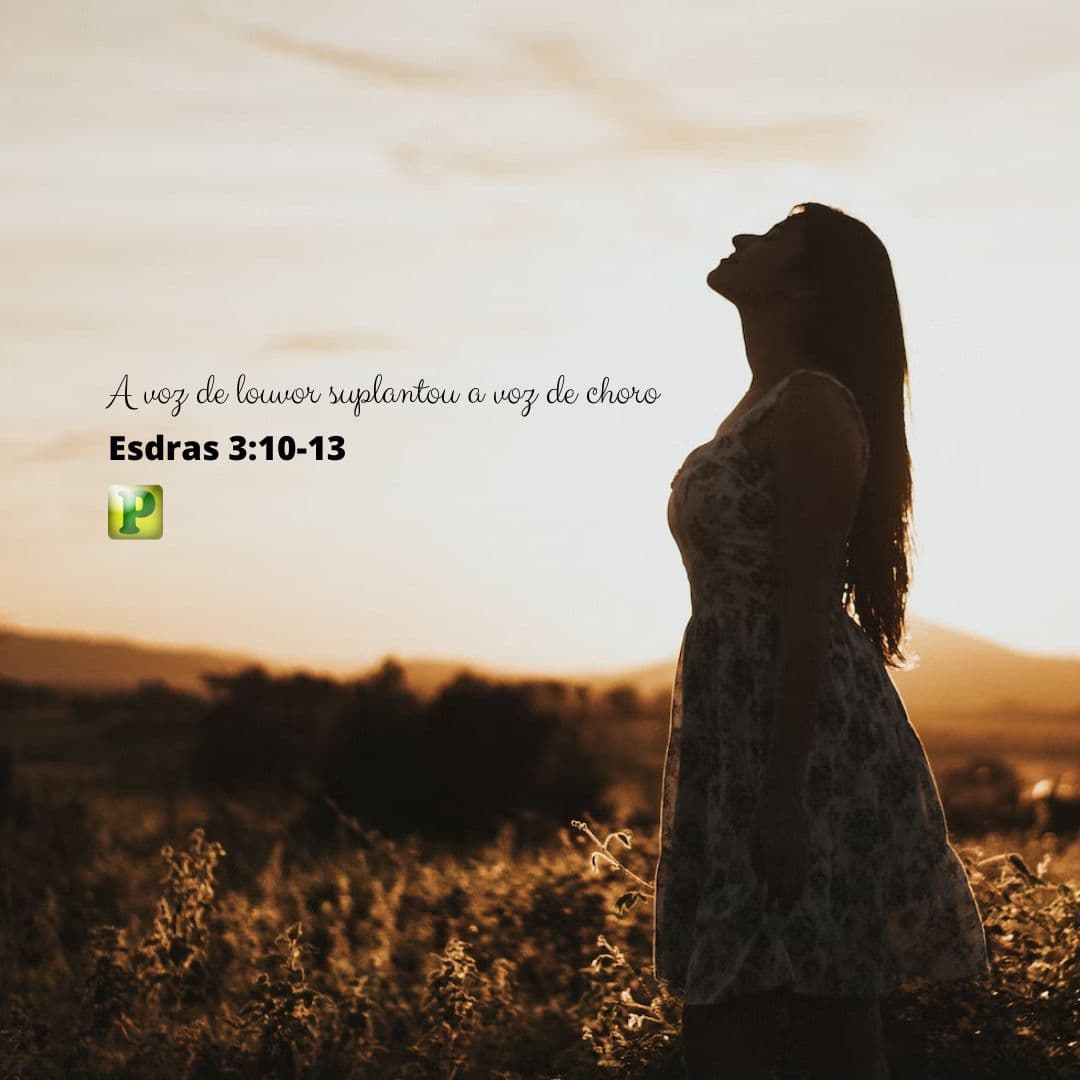A place for the Ark – Preaching
Preaching on I Chronicles 13:3 – And let us bring again the ark of our God, for we did not seek it in the days of Saul.
The story of the ark is impressive because it speaks of a project where God wanted to reveal himself to man and he used its elements to do so.
God has never left man to his own devices. Man creates his own idols, his own religions, he is capable of diverting God’s plan depending on his interests, his condition, his moment, but God is the same, he never changes, he is the same yesterday, today and forever.
God has a plan for man and he hasn’t changed that plan, nor will he change it. He has given man all the information, he has made everything available to him that he needs to walk in that plan.
Development of I Chronicles 13:3
The Ark of the Covenant (the name already indicates the purpose) was a project of God adjusting his covenant with the people of Israel, he was making available to the people of Israel a project of his interest and his permanent presence in the midst of his people. It was his commitment to the people, a commitment that would never end, but the people forgot it. This is a common human failing, but it doesn’t please God.
When we see the story of the ark, we see what happened at the death of Jesus, at the sacrifice of Jesus, when the veil of the temple was torn from top to bottom and all the secrets were exposed at that moment, everything was opened up so that man could go directly to God and where he could participate in the mysteries of God.
What Israel despised was now going to be transferred to the Church in a very special way, but that ark would no longer be on earth, but in eternity because it was God’s rule over the Church, representing all those elements that lived with man here.
When the veil was torn, many didn’t realize (even though they were Christians) the three fundamental things of God’s revelation to man that were now available to them, which were:
The Ark covered in gold
Which is the Word of power.
The Mercy Seat
That is the figure of Jesus, the one who now made himself available to man. From then on, man would come to God through Jesus, through his sacrifice on the cross of Calvary.
The second figure was the power of Jesus’ blood represented there on the Mercy Seat, which covered what was inside the ark, no one could see what was inside, no one could see the mystery that was inside without knowing the power of Jesus’ sacrifice.
The cherubs
There are different interpretations of the nature and function of the cherubim. Some see them as angelic beings with a specific function in the heavenly hierarchy, while others see them as symbolic representations of God’s glory and majesty.
Whatever the interpretation, the cherubim remind us of God’s holiness and power, and of his constant presence in our lives. They invite us to worship God in spirit and in truth, recognizing His greatness and majesty.
The ark had three important, valuable elements: fear, mystery and glory.
When God placed the ark at the disposal of the people of Israel, he was placing the Trinity in the midst of his people, it was everything they needed to live in the presence of the Lord, it was the victories, it was the great goals achieved, it was the complete project. But time took it upon itself to remove God’s will from man’s heart and he forgot what was inside the ark. He wanted a unilateral commitment from God to him, man didn’t want to commit himself to God.
The value of the ark, its action, its effectiveness, was within the project. If the project wasn’t achieved, the value of the ark wouldn’t be what God wanted and he would withdraw his hand.
We’re going to look at the events that have taken place over time with regard to Israel.
Josh. 18:1 – The ark enters the land and settles in Shiloh. It was a great joy, but the people didn’t want to commit themselves to God through their leaders.
I Sam. 4:1 to 22
Vs. 3 – The Philistines were fighting the Israelites. Israel was losing, so the elders told them to bring the ark of the temple to the battlefield to see if they could win the war.
Vs. 4 – And there were Hophni and Phinehas, Eli’s sons, who were the keepers of the ark, but they sinned and those who look after the ark cannot get involved with sin, with the world. The world has to be left aside, that which is man’s cannot be mixed with that which is God’s and we will see this in the course of the history of the ark, the events that took place as a result of man’s misunderstanding of the Lord’s will.
Eli’s sons defiled themselves, they didn’t value their role, which was the ministry of guarding, of preserving the ark, and that day the Philistines killed them and took the ark.
The ark was a blessing, but now it has become a curse.
V. 18 – When Phinehas’ wife (pregnant) heard that her husband, her brother-in-law and her father-in-law had died and that the ark had been taken, she went into labor prematurely and gave birth to a son whom she named Ichabo, which means the glory of Israel is gone , and then she died.
The glory of God was in the ark, and the lack of fear of God defeated Israel there.
Time went by and Israel replaced the ark with liturgies, the ark was no longer important to them because they had their own religious way of thinking, they had a historical tradition about God. We could even say, by inference, by analogy, that they were good Christians, since Jesus had not yet been born, so Christianity and, consequently, Christians did not yet exist, but the picture was very similar to what we see today.
I Sam. 5:2 – The Philistines took the ark and put it in the house of their god.
I Sam. 6:1 – The Philistines sent the ark out of their land because it had been seven months of suffering because the hand of the Lord was heavy on them.
Vs. 10 to 12 – They put the ark on a cart with two cows and let them loose, and the animals went straight, without turning to the right or to the left, to Bethshemesh.
Vs. 13 – When the men there saw the ark, they rejoiced and offered those cows as a sacrifice on the wood of the chariot.
Vs. 19 to 21 – But they made a fatal mistake, they looked inside the ark and the Lord struck down 50,070 men, so they asked the men of Kirjath-jearim (which is in Judah) to take it.
I Sam. 7:1 – The men of Kirjath-jearim took the ark and put it in the house of Abinadab on the hill, and consecrated Eleazar his son to keep the ark of the Lord, and he stayed there twenty years, and the Lord blessed him.
I Sam. 14:18 – Saul never worried about the ark. There was a time when he ordered it to be brought, but he gave up because there was a fight going on against the Philistines and he thought it wouldn’t be necessary because, after all, he was a strong man, he was king, he had been set apart by God, so he would replace the ark perfectly.
It was like that with Saul, the ark was replaced by idols
The ark was a fear, a mystery and a glory, but it was forgotten for forty years, which is how long Saul’s rule lasted. (Acts 13:21)
II Sam. 6:1 to 19
Vs. 1 to 3 – David gathered all the chosen people of Israel to carry the ark of God from the house of Abinadab to Jerusalem, and he made a new ox cart to carry it.
Vs. 6 and 7 – Uzzah the son of Abinadab, who was one of those driving the chariot, touched the ark because it was about to fall off the chariot, and God struck him there.
Why did this happen?
Because the ark, which had been outside Jerusalem for forty years, was not going to return there without the people understanding that it represented the Trinity and that God was present, alive, in the midst of his people, and that he didn’t need man’s intervention for anything, and that the mystery of the ark was what was prophetic within it.
The men put the ark on top of the ox cart. But was this the Lord’s instructions for transporting the ark? How was the ark to be transported? How was the ark to be driven?
The Word in Ex. 37:1 to 5 says: ” And Bezaleel made the ark of setim wood … and overlaid it with pure gold within and without, and made a crown of gold round about it; and he cast for it four rings of gold at the four corners thereof, on the one side two rings, and on the other side two rings; and he made staves of setim wood, and overlaid them with gold; and he put the staves through the rings at the sides of the ark, to bear the ark.
The transportation of the ark was also prophetic because everything about it was prophetic
The four rings of gold, the staves of setim wood covered in gold, had been placed so that it would be carried by four Levites, they couldn’t touch it, it wasn’t the animal that was going to carry the ark, but they were men set apart for that function, it wasn’t going to be carried like any other thing, any other load, that’s why it was going to fall over, because that wasn’t God’s plan.
God’s plan was to present the mystery, which was Jesus, which was the ark, his glory, through the four gospels and not through four oxen. It was not by the power of man’s word, but through the ministry of Jesus revealed there as King, Prophet, Priest and Man.
The ox is a symbol of strength. This is how the world wants to bring the ark into God’s presence, by man’s strength, by man’s reason.
Uzzah wanted to help (he thought that if he didn’t intervene, God would fall), he put his hand in the ark and died.
And we learn a lesson from this. When we talk about the difference between the work of Saul and the work of David, we understand that the change was radical. The people were the same, both kings had been raised up by the Lord, but the first did his personal will, and the second did the Lord’s will.
One day God told Saul that he had to completely destroy the Amalekites and he disobeyed, brought the best animals from there to sacrifice them to the Lord and also brought King Agag.
Was he right?
He was, he just wasn’t doing God’s will.
Is this Christianity that exists doing God’s will?
Vs. 9 to 11 – David was saddened by this and afraid, so he sent and took her to the house of Obed-edom and she stayed there for three months, and the Lord blessed him.
When David saw that the ark could not be touched by man, when he realized that what was in the midst of the people was necessary for the life of the people themselves, he began to treat the matter with fear.
When we begin to understand God’s plan, we start to take into account David’s experiences with the Lord. David consulted the Lord about everything and obeyed.
David wanted to build the temple, but God said: ” Your son shall build a house for my name.” (II Sam.7:13)
Vs. 12 – After that David had her brought to the city of David.
All the people were happy, but no one wanted to abandon the idols. God’s blessing is something wonderful, everyone wants it, but no one wants God to speak, no one wants God to reveal himself, because man has his own particular way of managing religion. That’s what happened to everyone at the time, including Saul, who ended his days in sorcery and idolatry.
What is God for? God only serves to get in the way. A good religion doesn’t need God because it has its idols, God is figurative, Jesus is a historical character.
Vs. 13 – David took care to bring the ark with him.
After that episode with Uzzah, David took special care to transport the ark of the Lord.
THE SACRIFICE
Every six steps that the Levites carrying the ark took, they sacrificed oxen and fattened rams.
Six is a number that speaks volumes about man. It speaks of the need we have to cry out at all times because there are fundamental things in our midst, such as: the fear of God, the mystery of God (which is prophetic), the glory of God and the judgment of God.
THE REVERENCE
Another thing David learned was that no one was allowed to look into the ark. Those of Bethshemesh looked in and fifty thousand and seventy men of the people died (1 Sam. 6:19).
Whoever looks inside the ark will come to know the mystery that is only revealed when we die, when our reason dies, when our flesh dies, when religion dies in us. When that happens, we begin to see the mystery.
Where was the mystery?
He was in the presence of the tablets of the law (which is the Word of God), the manna (which is the bread that gives life) and Aaron’s rod that blossomed (which is the priestly ministry). It was all a mystery.
Aaron’s rod was a piece of dry wood, which was placed with eleven others in the tent of meeting, before the testimony (Num. 17: 1 to 8).
Whoever looks at the great mystery of this Work dies to the world, but is resurrected with the life that is inside the ark, and in this way he comes to understand that he is nothing.
Vs. 14 and 15 – As they carried the ark, David leaped for joy and offered sacrifices to God, and they carried the ark with joy and gladness and the sound of trumpets.
Where to put the ark?
The people learned from David to fear.
David suffered humiliation, accusations and scorn because of the ark, but he loved the ark and what it represented, which was the glory of God, so he wanted it close to him, he knew that Israel would only be victorious with the ark.
Jerusalem is only Jerusalem if it has the ark in its proper place.
Why conquer Jerusalem if you don’t have the ark? What’s the point of Christianity if God’s glory isn’t present? If he doesn’t reveal himself? If it doesn’t have the Word, if it doesn’t have the power of Jesus’ blood? What is the Church for if the ark is not in it? What is the ark for if it is forgotten, despised?
David said: ” I will build the house of the Lord near my house. The Lord said that it wouldn’t be him, but his son Solomon who would build the temple, because David was a man of war, of battles. (II Sam. 7:1 to 16)
Israel had its transitional phase, and the transition of this hour is the dominion of the Spirit.
There is a special place for the ark, with David, the awe, the mystery, the glory, but the people still need to know a lot about God, they need to know the project more deeply.
But the God we know is a God of fear, a God of judgment, a God of mystery, a God of glory, and his glory is in the midst of his people.
It’s the mystery of life, it’s the Word of God, this great mystery that we discover in this hour.
I Kings 6
King Solomon, son of David, builds the temple
It was a definitive construction. Everything was ready.
The Lord’s whole concern for our lives is this: to build a place in it for Him to be glorified.
The ark has been brought, there is a special place
The Word says in Num. 10:33 to 36: So they journeyed from the mountain of the Lord three days’ journey; and the ark of the covenant of the Lord went before them three days’ journey, to seek them a resting place.
And the cloud of the Lord was over them by day as they set out from the camp.
Moses said, “Arise, Lord, and let your enemies be scattered, and let the haters flee before you.
And she stood and said, ‘Return, O Lord, to the many thousands of Israel.
When the people of Israel passed over the Jordan on their way to the promised land, Joshua gave them a guideline: ” When you see the ark of the covenant of the Lord our God, and the priests the Levites carrying it, you also leave your place and follow it. But let there be a distance between you and it, as the measure of two thousand cubits, and do not come near it, that you may know the way by which you are to go, because you have not passed this way before. (Josh. 3:3 and 4)
The Church is going to be raptured with all its glory, the glory that the world despised, the glory that the world forgot, the glory that man didn’t want, but even now God has called us, no one is obliged. Do you want to?
The Jordan is in flood, it is overflowing, it is the blessing of the Holy Spirit that is at our disposal, the last wonder is about to happen, it is the definitive passage to the promised land, the way is open, a way you have never passed through, but don’t be afraid because the glory of Israel goes ahead, the mystery goes ahead, the fear of God goes ahead.
The ark is eternal
The Word says in Rev. 11:19: And the temple of God was opened in heaven, and the ark of his covenant was seen in his temple.
The ark was seen in eternity and it is the ark that ministers to the Faithful Church today. We will see it more closely than we do today.
Where to put the chest? Who will keep it?
We want her in our lives.
Amen.
More Preaching Outlines
- FAMILIES AND GLORIFICATION – 1 Chronicles 16:28
- There was nothing in the ark – I Kings 8:9
- A Place for the Ark – I Chronicles 13:03
- Mystery of God – Ephesians 1:3






